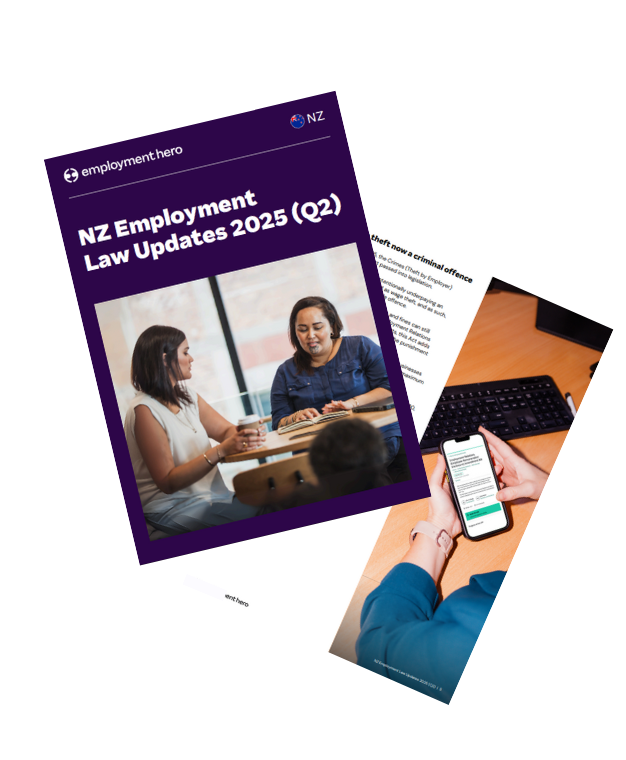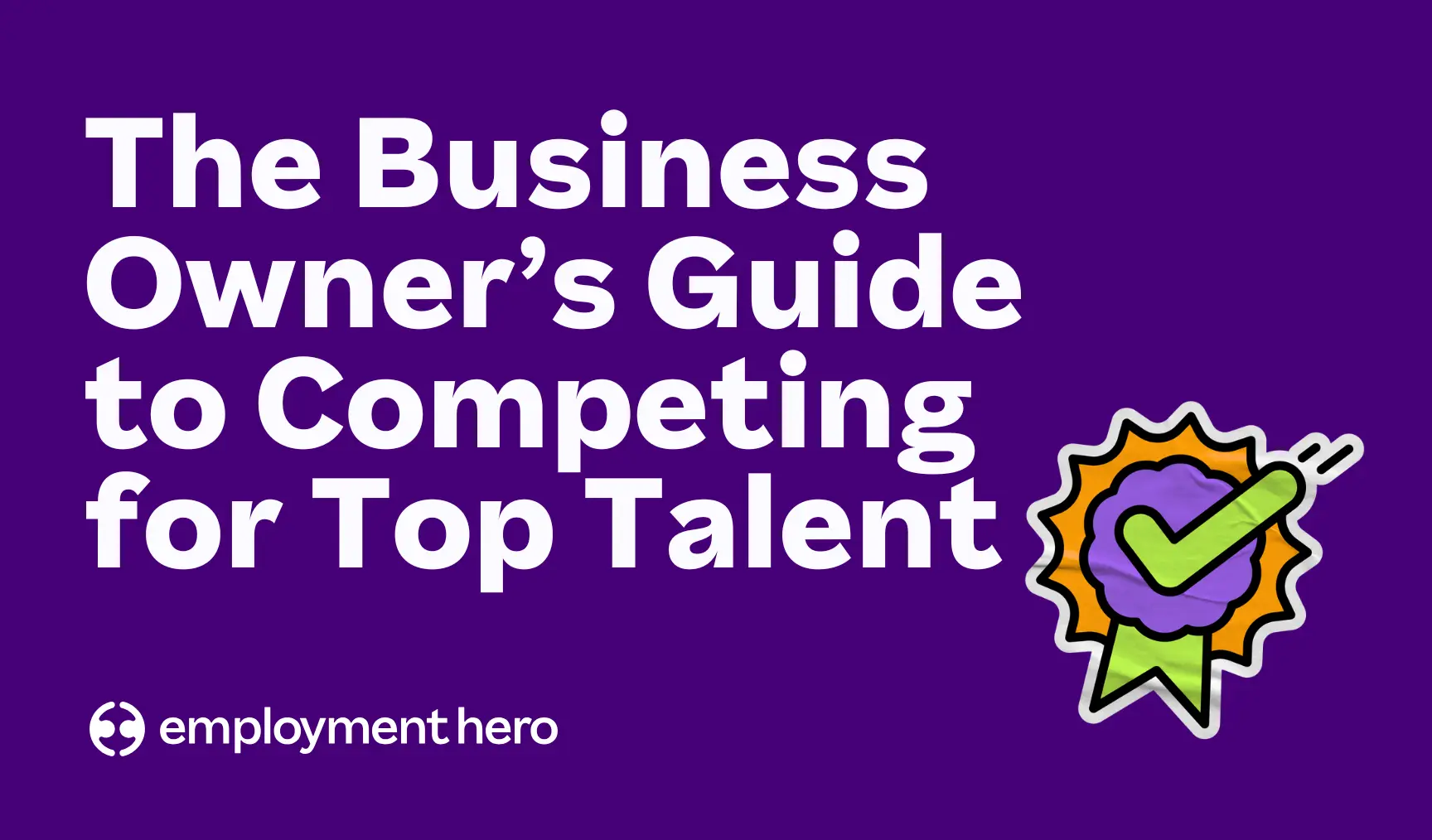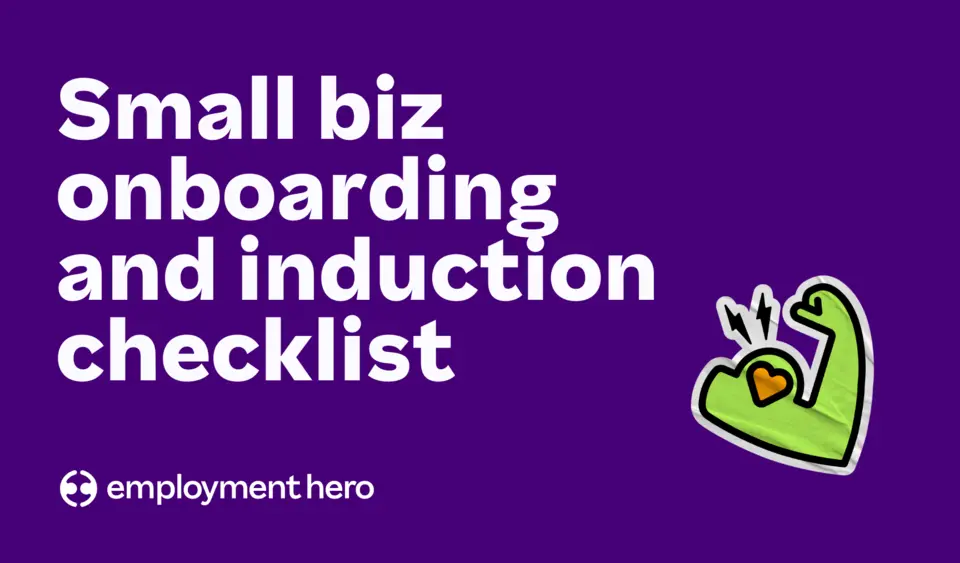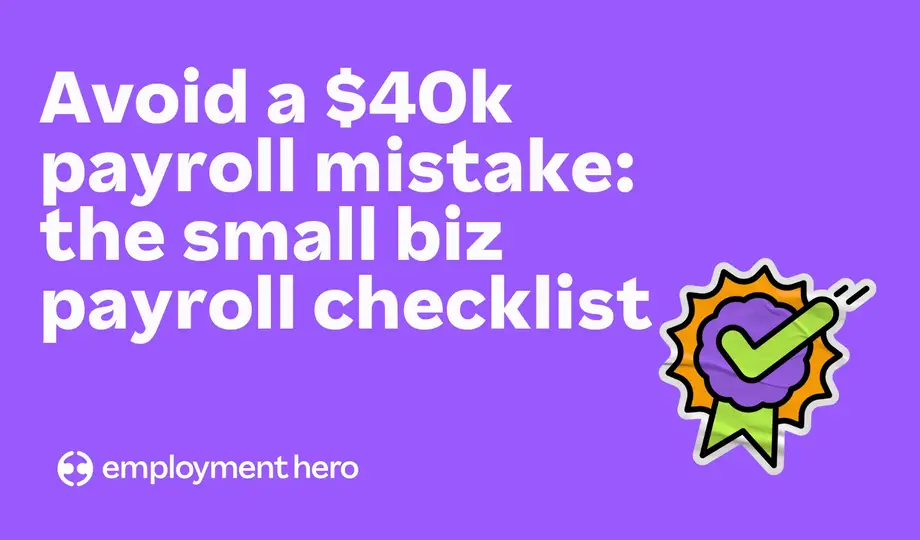Employment law updates 2025
Published
Employment law updates 2025
Published
2 min read

2025 has already been a big one for employment law in NZ. Intentionally underpaying employees is now classified as wage theft, the minimum wage increased, and the government announced several proposed changes.
In this factsheet, we’ll be covering:
- Wage theft
- The minimum wage increase
- Pay deductions for partial strikes
- Pay disclosure legislation
- Personal grievance claim threshold
- Contractor ‘gateway test’
- Proposed reforms to health and safety law
Understand your employer obligations with our 2025 Employment Law updates, so you can boost your compliance confidence and get back to focusing on growing your business.
Download the factsheet now.
Disclaimer: The information in this factsheet is current as at 8 April 2025 and has been prepared by Employment Hero Pty Ltd (ABN 11 160 047 709) and its related bodies corporate (Employment Hero). The views expressed in this factsheet are general information only, are provided in good faith to assist employers and their employees, and should not be relied on as professional advice. The Information is based on data supplied by third parties. While such data is believed to be accurate, it has not been independently verified and no warranties are given that it is complete, accurate, up to date or fit for the purpose for which it is required. Employment Hero does not accept responsibility for any inaccuracy in such data and is not liable for any loss or damages arising either directly or indirectly as a result of reliance on, use of or inability to use any information provided in this factsheet. You should undertake your own research and to seek professional advice before making any decisions or relying on the information in this factsheet.

What is employment law?
Employment law is the legislation which governs the relationships between employers and employees. Legislation is different in every country, and sometimes varies region to region within countries.
Employment law generally covers (but is not limited to):
- Employment contracts
- Employment types (full-time, part-time, contract, freelance, etc.)
- Hiring and recruitment
- Dismissal and termination of employment
- Occupational health and safety
- Workers’ compensation
- Workers’ rights
- Discrimination in the workplace
- Employee entitlements including annual leave, maternity leave and long service leave, amongst others
Why is it important for businesses to stay on top of employment law updates?
Employment law is always evolving. As society, and consequently the needs of employers and employees, change – so too must employment legislation.
Sometimes these changes will come in the form of amendments or reforms to legislation, sometimes important requirements will be changed to processes that affect businesses, sometimes statutory rates of pay or contributions will be amended, and sometimes new precedents will be set by cases seen in the court.
This can have a range of impacts on businesses. For example, if statutory rates of pay have changed but you have not updated your payroll, you could be at risk of non-compliance. If you’re not up to date with the latest rules around leave entitlements, your employees may be justified in making a complaint.
To make matters more complex, different employment law updates will affect different businesses in different ways. That’s why we always recommend not only keeping track of employment law updates, but seeking professional advice for your personal situation from a qualified employment lawyer.
Looking for more information about payroll in New Zealand? Download our guide to the basics of payroll in New Zealand.
How often does employment law change?
In a word – constantly. Like the rest of the legal system, employment law is constantly evolving, being amended and being updated.
A country’s law and policy-makers are always looking for ways to improve legislation and employment rules, in line with emerging needs or current events. As stated above, there are many legal changes happening at any one time, for any number of reasons.
We created our Employment Law Updates Factsheets to alert you seasonally to changes both current and upcoming, so feel free to check back on this page each quarter to stay up to date.
We know that it’s especially challenging as an SME leader, who doesn’t have the luxury of an in-house legal team or an expansive HR and administrative team to stay on top of these updates. We want to support you so that you can feel ahead of the curve when it comes to employment law, and future-proof your business in line with emerging legislation.
It’s all part of our commitment to making employment easier and more rewarding for everyone.
Should your business get help from employment law experts?
100%. This Employment Law Updates Factsheet is general in nature and does not speak to your specific situation. The views expressed in this article are general information only, are provided in good faith to assist employers and their employees, and should not be relied on as professional advice.
There are a thousand variables when it comes to the application of business and employment law compliance. This can include the industry your business is in, the number of employees you have, the location of your business – and so much more.
Our factsheets can provide a great point of reference for new or upcoming employment law updates. You might use these to kick-start discussions with your legal expert, or to seek further personalised advice on how these updates will impact your business.
Download our HR compliance checklist for Kiwi businesses.
Take the pain out of compliance with Employment Hero’s Employment Operating System
Clearly, there’s a lot to stay on top of as an employer in New Zealand. From wage theft legislation to increased minimum wage rates, compliance can be challenging.
That’s where our Employment Operating System comes in handy. An all-in-one employment solution, it offers everything from HR and recruitment, payroll, employee engagement, EAP services, HR advisory and much more. It’s the easiest way to bring all things employment into one central place.
If you’re ready to streamline employment in your business, get in touch with one of our business specialists or see us in action with a demo.
Related Resources
-
 Read more: Hiring Issues Holding You Back? The Business Owner’s Guide to Competing for Top Talent
Read more: Hiring Issues Holding You Back? The Business Owner’s Guide to Competing for Top TalentHiring Issues Holding You Back? The Business Owner’s Guide to Competing for Top Talent
Published 1 min read Hiring great people is one of the most powerful ways to grow your business – but…
-
 Read more: Dodge Thousands in Fines, Keep Great Staff: Onboarding Checklist
Read more: Dodge Thousands in Fines, Keep Great Staff: Onboarding ChecklistDodge Thousands in Fines, Keep Great Staff: Onboarding Checklist
If you run a business with under 10 staff, this onboarding checklist will help you get the most out of…
-
 Read more: Avoid a $40K Payroll Mistake: The NZ Small Biz Payroll Checklist
Read more: Avoid a $40K Payroll Mistake: The NZ Small Biz Payroll ChecklistAvoid a $40K Payroll Mistake: The NZ Small Biz Payroll Checklist
Think payroll mistakes don’t matter? For businesses with under 10 staff, even small slip-ups can lead to fines of up…










